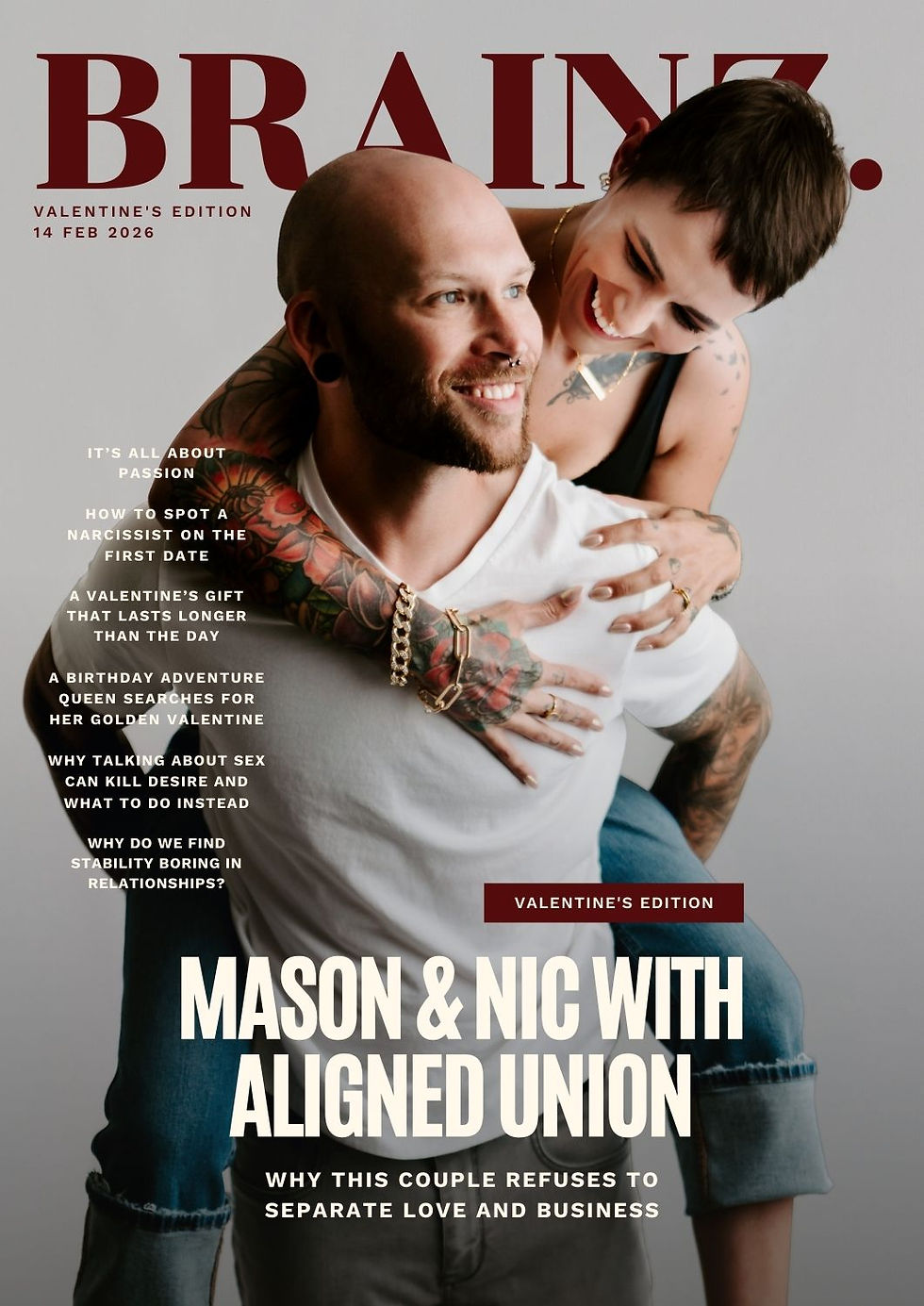How to Set Boundaries That Actually Feel Good When You Have Good Girl Syndrome
- Sep 5, 2025
- 4 min read
Empowerment Coach and founder of Own Your Life, Julie Vander Meulen pioneers in researching and applying personal development strategies to help ambitious women overcome the good girl syndrome and become the powerful individuals they were always meant to be.

Many women grow up believing that being “good” means being agreeable, selfless, and endlessly accommodating. But when saying yes becomes a habit of self-abandonment, the cost is high burnout, resentment, and a quiet loss of joy. This article explores the hidden impact of Good Girl Syndrome and shows how setting boundaries isn’t selfish, but a radical act of self-respect and freedom.

When being “good” means abandoning yourself
There was a time in my life when saying “no” felt like betrayal. Not just of others but of the version of myself I thought I was supposed to be. The helpful one. The easy one. The girl who had it all together and didn’t need too much. I would give more than I had, explain more than necessary, and apologize for things I hadn’t even done, then smile through the burnout. I didn’t call it a boundary issue. I called it being a good person.
But over time, I began to notice a quiet, consistent ache in myself and in the incredible women I was coaching. Women who had high-profile careers, thriving families, full calendars, and exhausted souls. Women who, like me, were taught that being selfless was the pinnacle of success. Women who were so used to being “good” that they’d forgotten how to be true.
The hidden impact of good girl syndrome
This is the hidden impact of Good Girl Syndrome. It distorts your relationship with your needs. It makes boundaries feel dangerous. And it wires your nervous system to believe that if you protect your energy, you’ll lose love, respect, or opportunities. So instead of setting limits, you shape-shift. You overcompensate. You stay silent until the resentment builds, the fatigue sets in, and you start to lose your spark.
Here’s what I need you to know, boundaries aren’t the problem. The story you’ve inherited about boundaries is the problem.
Reframing what boundaries really are
You’ve probably been taught that setting boundaries means being mean, dramatic, or difficult. But the truth is, boundaries are the deepest form of self-respect. They’re not a rejection of others, they’re a commitment to yourself. They say, I matter too. My needs are valid. My peace is important.
And here’s the real magic, when your boundaries come from a place of love, not fear, they stop feeling harsh and start feeling true. They don’t create distance, they create intimacy because they let you show up fully, honestly, and without resentment.
How to set boundaries that feel like freedom
So how do you begin?
Start small. Identify one area of your life where you feel consistently drained.
Ask yourself, What am I tolerating? What am I afraid will happen if I stop tolerating it?
Then, experiment with one clear, simple boundary. No long explanations. No emotional acrobatics. Just clarity.
Try:
“That won’t work for me.”
“I’m not available for that.”
“I’ll get back to you once I’ve had time to think.”
And then breathe through the discomfort. You might feel guilt. That’s okay. Guilt isn’t proof you’ve done something wrong, it’s proof you’re breaking a pattern.
Becoming a woman who honors herself
With every boundary you set, you’re re-educating your nervous system. You’re teaching that you can be loved and honest. That you can care for others and protect yourself. That you don’t have to choose between connection and truth.
The goal isn’t to become unshakable overnight. The goal is to become someone who honors her energy the same way she honors her calendar, her career, or her clients. Someone who sets boundaries not as an act of rebellion but as an act of devotion.
Because when you stop abandoning yourself in order to be liked, you don’t just reclaim your voice.
You reclaim your joy. Your clarity. Your life.
And that, my friend, is the most radical boundary of all.
Julie Vander Meulen, Empowerment Coach for Ambitious Women
Julie Vander Meulen is an Empowerment Coach for ambitious women and the visionary founder of Own Your Life Academy, a premier coaching platform dedicated to personal and professional development. Through her innovative research and holistic coaching strategies, Julie specializes in guiding women to break free from the 'good girl syndrome,' empowering them to claim their worth and step into their power. Her work is rooted in the belief that every woman has an inner powerhouse waiting to be unleashed. With a vibrant community and a track record of transformative coaching experiences, Julie's mission is to inspire women worldwide to embrace their true selves and create lives they love.
Want more?
Sunday Sanctuary Newsletter: Every week, I send a warm, soulful letter to ambitious women unraveling Good Girl Syndrome. Rituals, breakthroughs, and tiny revolutions, straight to your inbox. Join here.
Take the Good Girl Syndrome Quiz: Get crystal-clear on how Good Girl Syndrome shows up in you and what you can do about it. Take the quiz.
Book a Free Coaching Session: Want to start setting boundaries that feel like freedom, not fear? Let’s meet. Book your free Meet & Greet.









